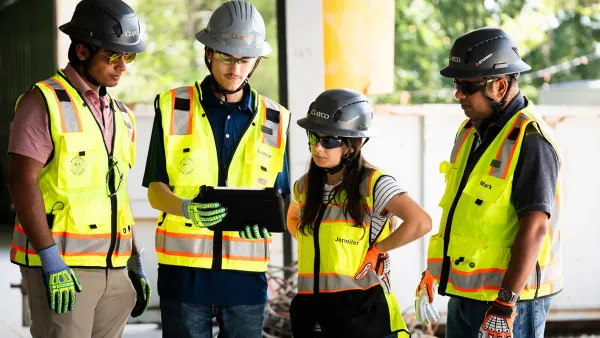Dive Brief:
- Microsoft was set to host more than 4,000 students on its campuses for the largest and most diverse summer internship in the company’s history. But in the wake of the COVID-19 pandemic, the tech giant announced April 6 that it’s shifting the in-person intern experience to a virtual internship program.
- Microsoft will prepare incoming interns for a virtual experience by using onboarding tools including Microsoft Dynamics 365 and collaboration tools like Microsoft Teams, Kathleen Hogan, executive vice president and chief people officer, said in a blog post. The program team will help interns achieve their goals through remote events that focus on building connections and fostering learning. Interns will also engage with senior leaders across Microsoft through virtual events.
- Students will be encouraged to "co-create their summer experience" by sharing TED-style talks or hosting their own volunteer projects, for example. The company is also offering students unable to participate in a virtual internship the opportunity to defer until next year. "Adversity often creates some of the biggest leaps in innovation, and I predict that this year’s intern class will not only help us shape our virtual experience, they will have a lasting influence on our program for years to come," Hogan said.
Dive Insight:
Virtual summer internships are becoming an option as many companies operate in telework environments to prevent the spread of COVID-19.
"There has been worldwide disruption in the workplace, but summer internship programs don't need to stop," Parker Dewey Founder and CEO Jeffrey Moss said in a statement. Parker Dewey aids college students and recent graduates in obtaining short-term, paid, professional assignments. The company announced April 9 that it will assist organizations to move internships online. "We've found that by 'unbundling' the workload of a traditional internship into discrete projects, interns working remotely can have an engaging experience that best prepares them to launch their careers upon graduation," Moss said.
Virtual internships can also incorporate the basic fundamentals of in-person programs, which experts say have three components — a short, formal onboarding; a focus on continuous skill-building; and providing exposure to the professional world.
"[Students] want to gain the experience that prepares them for the next professional opportunity and the chance to build relationships with other professionals in their field," Rachel Loock, associate director of career services at the University of Maryland's Robert H. Smith School of Business, recently told HR Dive. "That really sets apart a positive internship experience from a negative one."
Providing virtual internships for students amid the COVID-19 crisis can benefit businesses as well, according to Cameron Jahn, director of employer product marketing at Handshake, an early career network. "Employers can foster goodwill with early talent by providing them with valuable opportunities during this downturn, so that interns, in turn, can have a lasting positive association with a company that showcases its leadership during this time — and despite economic or environmental uncertainties," Jahn recently told HR Dive.
Interns can help build a company’s brand, and even contribute to the bottom line by taking on projects that kick start their careers.










